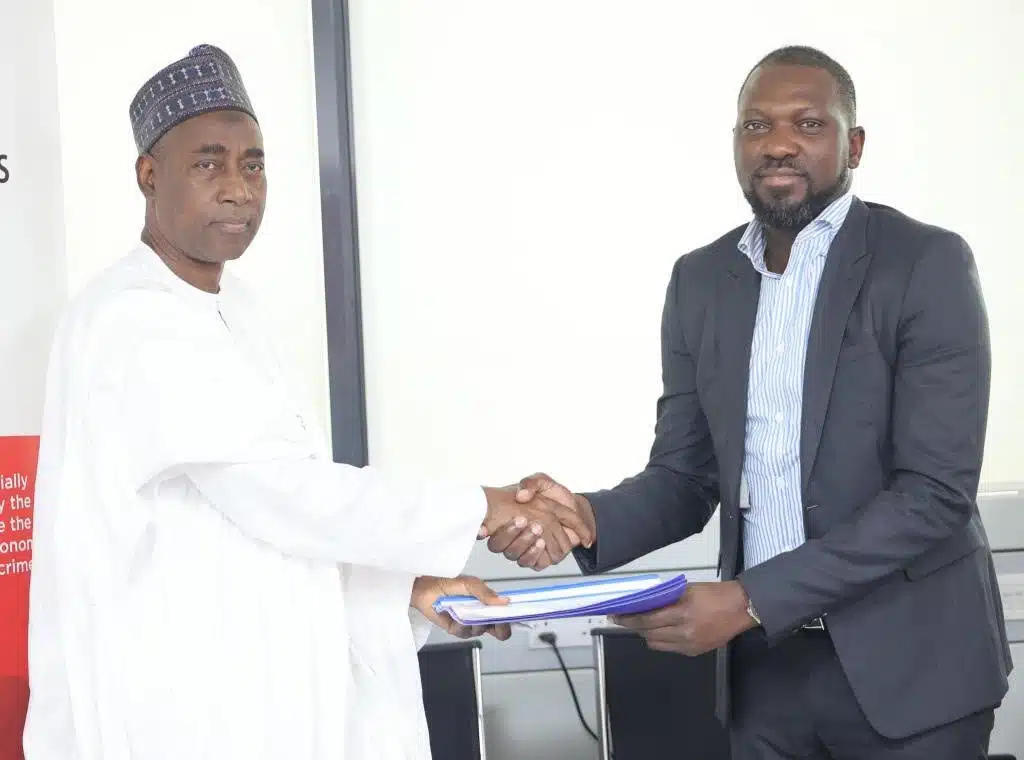
Flutterwave is partnering the Economic and Financial Crimes Commission (EFCC) to establish a Cybercrime Research Centre that will intensify the fight against Internet crime, secure business transactions and provide a sustainable lifeline to youths across the country.
The partnership was formalised on June 14, with the signing of a Memorandum of Understanding (MoU) in Abuja between the American financial technology company and EFCC.
This high-level event was attended by the Executive Chairman of the anti-graft agency, Ola Olukoyede; the Founder/Chief executive Officer (CEO) of Flutterwave, Olugbenga ‘GB’ Agboola; the Chief Compliance Officer, Mobolaji Bammeke; Director of Federal Bureau of Investigation (FBI), Christopher Gray and other senior officials from the EFCC and FBI.
Reiterating the company’s dedication to the initiative, Agboola stated, “As the largest payments infrastructure company in Africa, we are committed to promoting secure and safe transactions.
This initiative underscores our commitment to creating a fraud-free financial ecosystem and leading the charge in safeguarding transactions across Africa.
We applaud EFCC’s relentless efforts to combat Internet fraud and other illicit activities in the financial sector.”
Also, appreciating the partnership, Olukoyede added, “EFCC is impressed with the strides and expanse of Flutterwave across Africa.
This partnership marks a significant leap forward in our efforts to combat financial crimes and ensure a secure financial landscape for Nigerians.
The Cybercrime Research Centre will significantly enhance our capabilities to prevent, detect and prosecute financial crimes.”
The MoU was signed by the Secretary of EFCC, Muhammad Hammajoda, and Agboola, marking a pivotal moment in the collaborative efforts to enhance financial security in Nigeria and beyond.
As the payments ecosystem continues to evolve, the prevalence of financial fraud remains a significant challenge, threatening the stability and trust in financial systems.
This partnership between Flutterwave and EFCC exemplifies how public-private collaboration can effectively address these issues, paving the way for a more secure and prosperous economy in Nigeria and across Africa.




